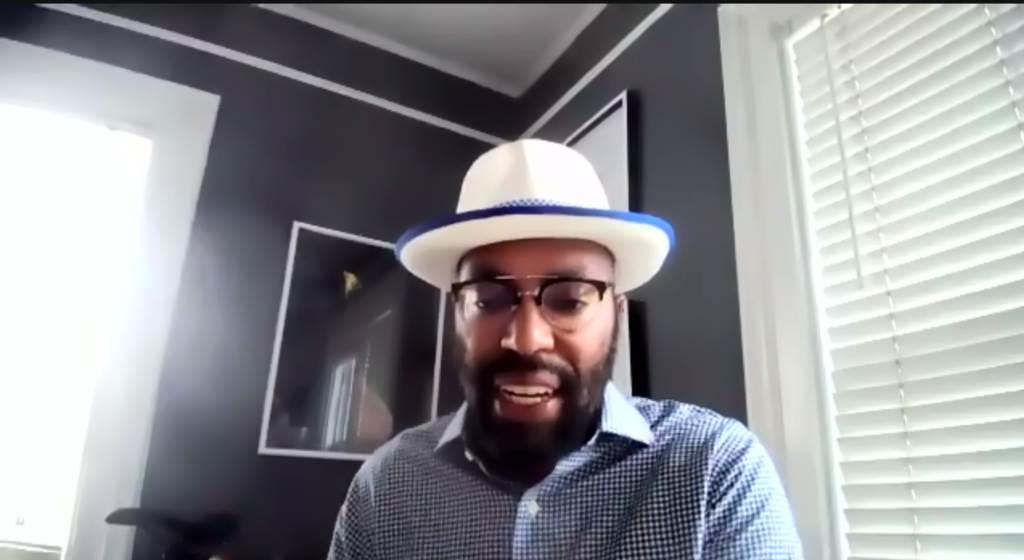When students tell Stanford University Nominelli-Oliver Professor of Education Jo Boaler, Ph.D., that math is hard, she says “good.”
During her keynote address, “Limitless Mind: Learn, Lead, and Live Without Barriers,” at the 2021 Math Summit on Aug. 3, Boaler explained that neuroscientific studies show that the best time for a student’s brain to grow and develop new pathways is actually when they’re struggling and making mistakes.
“We’ve sort of grown up as educators thinking that we want kids to get work correct all the time, but actually that’s not what we want. We want them to be in this place of struggle because that’s what develops these really great connections,” she said.
The Math Summit, hosted by the Triangle Math Alliance, is now in its fifth year at NC State and held in partnership with SAS and public schools in Wake, Chapel Hill, Durham, Orange and Johnston counties. The event took place virtually this year with two keynote speakers, and gave hundreds of registered math teachers an opportunity to engage in topic-specific breakout sessions and informal conversations with their peers. The theme for this year’s event was “Looking Back…Moving Forward.”
Boaler, who is the author of 14 books and was named by the BBC as one of eight educators who are changing the face of education, said during her speech that students often assume that you either “have a brain for doing math” or you don’t.
She noted that students must understand that there are no limits to what they are able to learn mathematically because nobody is born with brain pathways that are designed for excelling at math. Instead, these paths develop and deepen as they continue to push themselves and learn new things.
It’s therefore important, she said, for students to develop a growth mindset and believe that they can achieve within math classes and other spaces as well.
Educators and parents should talk to children about barriers—such as time pressures, peer pressure or goals of perfectionism—that cause them to feel like they can’t succeed and remind them that adapting a growth mindset is a journey, not a quick switch.
“There is some very strong evidence that what you believe about yourself will actually change how your brain works, so it’s really no wonder that kids with a growth mindset are doing so well. Every time they make a mistake, their brain responds with more growth,” Boaler said.
To help encourage a growth mindset among children, Boaler suggested that educators “open up math” using images and words as well as numbers to create multidimensional experiences that give children more room to learn and grow.
For example, instead of showing students a division problem and asking them to solve it using a specific rule or method, teachers can present the problem and allow students to attempt to solve it in whatever way they can as long as they are able to show their thinking visually and make sense of their answer.
This shift, Boaler said, will give students more space to develop understanding, think visually and make connections.
And although most standardized testing requires students to be able to complete a set number of traditionally-presented problems within a specific time limit, Boaler noted that her research has found that if educators swap a focus on speed and procedure for a focus on depth and creativity in the classroom, students develop better understanding of the subject matter. This ultimately translates to them scoring well on timed tests later on, she said.
“My final message to give to kids is that we don’t want math to be about speed. What we want math to be about is flexible and creative thinking. Speed is actually the enemy of that really important thinking,” she said.

Keep the Rigor High and Love Them Through
To close out the two-day Math Summit, Chris Emdin, Ph.D., an associate professor in the Department of Mathematics, Science, and Technology at Columbia University’s Teachers College, delivered the second keynote address entitled “Where Equity and Technology Resides: Radical Reimagining in STEM.”
During the speech, Emdin, who is the author of Urban Science Education for the Hip Hop Generation and Ratchetdemic: Reimagining Academic Success, discussed how educators can focus on a pedagogy of restoration and reconciliation that shows students that everybody can be successful in STEM and other content areas.
He also encouraged educators to speak to their students’ souls, not just to their minds.
“If you see them as mathematicians and scientists, then you must keep the rigor high and love them through to those places that they think they can’t reach,” Emdin said. “[Use] the pedagogy of loving folks up to where they need to be, rather than saying that I will lower expectations and call it love. If there are no expectations, it ain’t love.”
- Categories:



